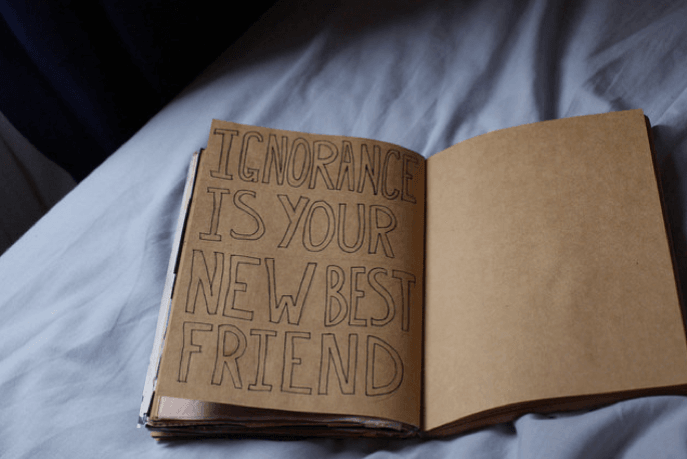
Al ritorno dalle ferie le aziende dovranno preparare il Business Plan, ma non sarà il solito rituale. Riflessioni sui piani del prossimo anno.
…..the human spirit since the renaissance…has consisted and continues all the time to consist mainly, not in the discovery of positive truths, but substantially of negative ones. It consists, in other words, in knowing the falsity of what in the more or less distant past was thought to be certain… Giacomo Leopardi: Zibaldone (The Notebooks) […]

…..the human spirit since the renaissance…has consisted and continues all the time to consist mainly, not in the discovery of positive truths, but substantially of negative ones. It consists, in other words, in knowing the falsity of what in the more or less distant past was thought to be certain…
Giacomo Leopardi: Zibaldone (The Notebooks)
The Renaissance was a time of learning, marked by humanists gathered at the court of Lorenzo de ‘Medici (1449-1492). There were Renaissance educators and then others in their wake who conceived innovative ways of understanding education, tracing revolutionary paths as compared with the teaching orthodoxy carried out in the school.
The entrepreneurial renaissance springs up from learner-centred education, which marks the reawakening or the rebirth of learning and culture, building an ideal bridge between past and present Renaissance Men: from Leonardo da Vinci’s flying machine invention to Elon Musk’s advanced rockets and spacecraft. Learning that enhances the expression of one’s own original ideas, and digitization that provides resources online and in the cloud, herald the arrival of the creative age of education.
The learning process takes over the teaching process in order to cultivate abstruse questions that reveal unusual paths to go. Teaching is focused on knowledge maps so that the student is placed in a position to say ‘I know’. Learning, instead, prepares the mind to the understanding of ignorance as something that is normal rather than deviating from the norm. As highlighted by Mark Forsyth (The unknown unknown: Bookshops and the delight of not getting what you wanted. London: Icon Books, 2014), learners exploring ignorance take pleasure in not finding what they were looking for and they are not afraid to confront the uncertainty that comes from the ‘unknown unknowns’. That’s how the facts classified as immutable, fixed once and for all, are challenged and proven wrong.
In a report from Tokyo in February 1990, the Italian journalist Tiziano Terzani wrote about the Japanese school: “At school the child is not used to think for themselves, but trained to say the right thing at the right time. For each question there is an answer and that must be learned by heart. ‘What happens when the snow melts?’ – asks the teacher– and the entire class, in chorus, has to answer, ‘It becomes water’. If one is to say, ‘Spring is coming!, is reproached”.
From another perspective, the neuroscientist Stuart J. Firestein, director of the Department of Biological Sciences at Columbia University, observed, “I began to sense that the students must have had the impression that pretty much everything is known in neuroscience. This couldn’t be more than wrong. I had, by teaching this course diligently, given these students the idea that science is an accumulation of facts. Also not true. When I sit down with colleagues over a beer at in meetings, we do not go over the facts, we do not talk about what’s known; we talk about what we’d like to figure out, about what needs to be done “.
The Dutch Renaissance humanist Erasmus of Rotterdam (1466-1536) considered that the understanding through conversation of students with each other and with their teachers was far more important than memorising required at many religious schools of the Middle Ages. In the wake of Erasmus, the Moravian educator John Amos Comenius (1592-1670) suggested to teachers to leverage the sensitivity, and therefore the feeling, of the students rather than settling for their ability to memorize. And learning through conversation, according to the English philosopher and physician John Locke (1632-1704), had to be at the centre of the school curriculum.
In the early twentieth century, the Italian writer Giovanni Papini (1881-1956) spoke against the school that “does not invent knowledge but prides itself on transmitting it”, and shifted the emphasis from teaching that takes students to give the right answer to learning in experimental laboratories, which provide a basis for raising, students and teachers together, unspoken and unprecedented questions, and learning from errors.
Around the time of Papini, on the American side of the Atlantic, the educational reformer John Dewey (1859-1952) ranked among the protagonists of education an unusual subject: ignorance, which he featured as ‘genuine’. It would be profitable because accompanied by humility, curiosity and open-mindedness. As well as genuine, this type of ignorance spawns new ideas. The knowledge gained is the equivalent of the medieval ‘Finis Terrae’.
Over and beyond the visible horizon of the ‘Pillars of Hercules’, there is the unknown continent – what you do not know, and you don’t know that you don’t know. As claimed by Firestein, the above-mentioned neuroscientist, to overcome the limits of the known it takes the ability to remain in the mystery and the unknown – which is like “to find a black cat in a dark room, especially if there is no cat”, according to the saying of Confucius. Hence the Firestein’s idea “for an entire course devoted to, and titled, Ignorance. A science course [….] in which a guest scientist talks to a group of students for a couple of hours about what he or she doesn’t know”.
The creative ignorance learning is a journey that starts when you turn off the light of the day that is the certainty, advancing in the dark night of unmeasurable uncertainty. What will happen along the way towards the future, you will discover en route, as part of the process of redoing and invent. Living in the certainty of uncertainty, creative ignorant face, looking ahead, the unpredictable. That’s how new paths are made (not found!) by walking – previously unknown paths in science, art and culture, and, not least, in entrepreneurship that draws nourishment from them. That is precisely what marked the Renaissance Age.

Al ritorno dalle ferie le aziende dovranno preparare il Business Plan, ma non sarà il solito rituale. Riflessioni sui piani del prossimo anno.

Scarica il podcast della puntata. Andrea Bucci è trasteverino di nascita ma cittadino del mondo per i tanti anni passati in Australia, UK e Francia, nel corso di una carriera che lo ha visto iniziare in Iveco per poi approdare in Nissan e diventare nel 2015 CEO di Knauf Italia. Al suo lavoro affianca tre splendide figlie […]

Il pendolarismo può essere per qualcuno un’opportunità irrinunciabile, un’occasione di crescita personale e professionale. Per altri invece una condanna. E’ il caso degli autotrasportatori. A qualsiasi ora del giorno e della notte percorrono centinaia di chilometri per effettuare le consegne. Subiscono ogni tipo di abuso da parte delle ditte di trasporto e per necessità di […]